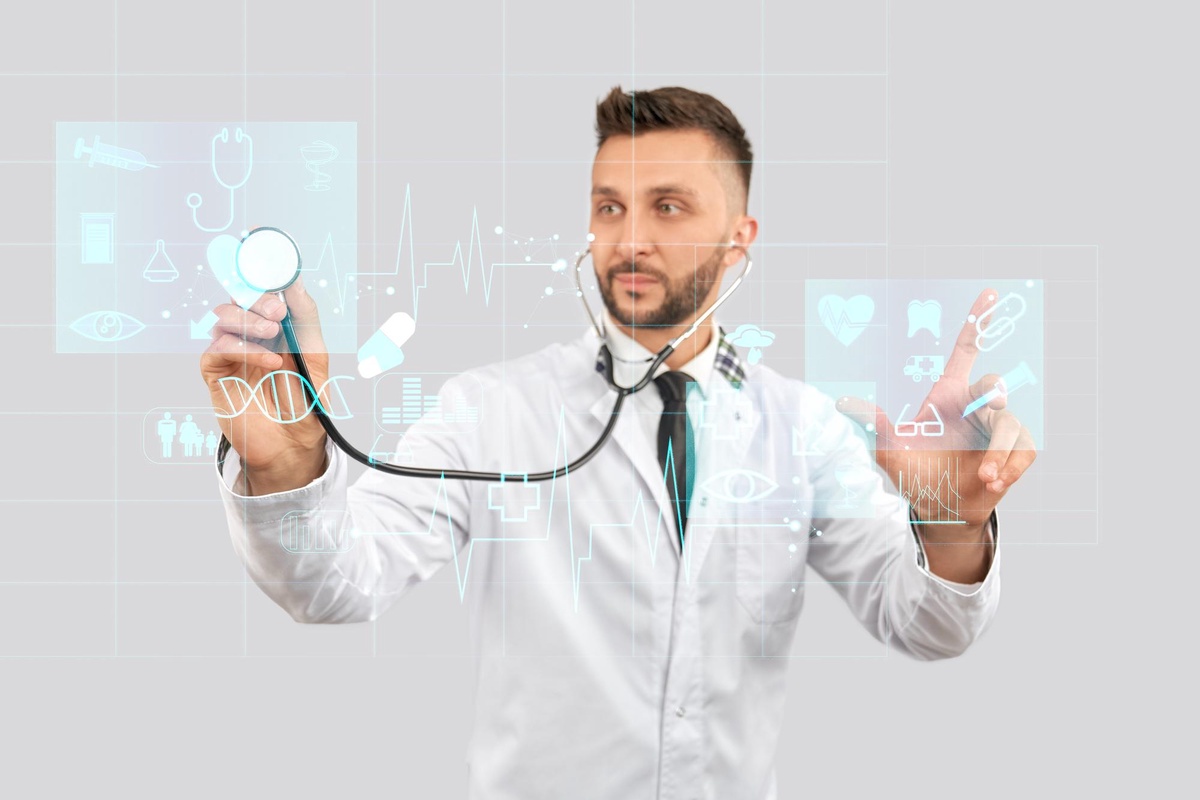Introduction
In today's digital age, the healthcare industry is embracing technological advancements to provide efficient and convenient services to patients. One such innovation is the on-demand doctor mobile app, which allows users to connect with healthcare professionals and receive medical assistance anytime, anywhere. This article aims to provide insights into developing an on-demand Healthcare mobile app and offering telemedicine app development solutions.
Understanding the Concept of Telemedicine
Telemedicine is the practice of providing healthcare services remotely, using telecommunication technology. It enables patients to consult with doctors, receive diagnoses, and get prescriptions without physically visiting a medical facility. Telemedicine offers numerous benefits, including increased accessibility, reduced waiting times, and improved convenience. A health app developer plays a crucial role in this field by creating user-friendly and secure applications that facilitate telemedicine services, ensuring smooth communication and seamless interaction between patients and healthcare providers.
Identifying Key Features for the On-Demand Healthcare App
a. User Registration and Profile Creation:
Enable users to create personalized profiles, providing essential details such as name, contact information, medical history, and insurance details.
b. Doctor Profiles and Availability:
Include comprehensive profiles of doctors within the app, highlighting their specialization, experience, and availability. This feature allows users to choose healthcare professionals based on their requirements.
c. Appointment Scheduling:
Implement a calendar-based system that enables users to book appointments with doctors at their preferred date and time. Send reminders and notifications to both users and doctors to ensure seamless communication.
d. Video and Audio Consultations:
Integrate a secure and reliable video calling feature within the app, enabling users to have virtual consultations with doctors. Ensure the platform supports high-quality audio and video transmission for effective communication.
e. In-App Chat and Messaging:
Include a chat functionality that allows users and doctors to communicate via text messages, and share documents, images, and medical reports. This feature aids in quick consultations and follow-ups.
f. Prescription and Pharmacy Integration:
Provide doctors with the ability to generate electronic prescriptions that can be directly sent to partnered pharmacies. Integration with pharmacies allows users to order medicines for home delivery.
g. Payment Gateway Integration:
Facilitate secure and convenient payment options within the app. Integrate popular payment gateways to enable users to pay for consultations, prescriptions, and other services seamlessly.
h. Ratings and Reviews:
Implement a rating and review system, developed by an experienced health app developer, where users can provide feedback on their experience with doctors. This feature, crafted with expertise in user-centric design and functionality, helps maintain transparency and credibility within the app.
Ensuring Security and Compliance
a. Secure Data Transmission:
Implement end-to-end encryption for all communication within the app, ensuring the privacy and confidentiality of user information.
b. HIPAA Compliance:
Adhere to the Health Insurance Portability and Accountability Act (HIPAA) regulations to ensure the protection of patients' electronic health records and sensitive data.
c. User Authentication:
Implement a robust authentication system to verify user identities and prevent unauthorized access to medical records and personal information.
d. Regular Security Audits:
Conduct regular security audits to identify vulnerabilities and address them promptly. Keep the app updated with the latest security patches and protocols.
Choosing the Right Technology Stack

a. Mobile Application Development:
Select a suitable technology stack based on the app's requirements, considering factors such as scalability, performance, and platform compatibility. Popular frameworks for developing on-demand Healthcare apps include React Native, Flutter, and Xamarin.
b. Backend Development:
Choose a reliable and scalable backend technology stack to handle data storage, user management, and communication between the app and the server. Common choices include Node.js, Django, and Ruby on Rails.
c. Cloud Infrastructure:
opt for a secure and scalable cloud infrastructure like Amazon Web Services (AWS), Google Cloud Platform (GCP), or Microsoft Azure to host the application and handle data storage.
Testing and Quality Assurance
- Conduct thorough testing at each stage of the development process to ensure the app functions seamlessly across different devices and platforms.
- Perform functional testing, usability testing, performance testing, and security testing to identify and address any issues or bugs.
- Prioritize user feedback and conduct beta testing with a limited group of users to gather real-world insights and refine the app's features and user experience.
Towards the Future: The Global Healthcare App Development Trends for 2023
Telemedicine and Virtual Consultations
Telemedicine has gained immense popularity, particularly during the COVID-19 pandemic, as it enables patients to consult with healthcare professionals remotely. In 2023, we can expect healthcare apps, developed by an expert health app developer, to enhance their telemedicine capabilities by integrating features such as real-time video consultations, chat functionalities, and secure file sharing. Furthermore, the incorporation of artificial intelligence (AI) algorithms, developed by health app developers, can help healthcare apps provide preliminary diagnoses and personalized treatment recommendations.
Wearable Technology Integration
Wearable devices have already made their mark in the healthcare industry, but their integration with healthcare apps is set to reach new heights in 2023. These apps will seamlessly connect with wearable devices, such as smartwatches and fitness trackers, to gather real-time health data. By utilizing this data, healthcare apps can offer personalized insights, track vital signs, and send timely alerts to users and their healthcare providers. Wearable technology integration will empower individuals to actively participate in their health management.
Remote Patient Monitoring
Remote patient monitoring (RPM) allows healthcare providers to monitor patients' health outside of traditional medical settings. Healthcare apps will play a crucial role in facilitating RPM by collecting data from medical devices and sensors and transmitting it securely to healthcare providers. In 2023, we can anticipate significant advancements in RPM capabilities, including the integration of machine learning algorithms to identify patterns, detect anomalies, and predict potential health risks.
Medication Management
Medication adherence remains a challenge for many patients, leading to suboptimal health outcomes. In 2023, healthcare apps will offer comprehensive medication management features, including reminders, dosage tracking, and medication interaction alerts. Furthermore, these apps will leverage technologies like near-field communication (NFC) to enable users to scan medication labels and receive detailed information about their prescriptions. Enhanced medication management features will promote adherence and improve overall patient well-being.
Personalized Health Recommendations
With the help of AI and machine learning algorithms, healthcare apps will be able to offer personalized health recommendations based on individual health data. These recommendations will encompass various aspects, including nutrition, exercise, sleep, and stress management. By analyzing user data and patterns, healthcare apps will provide tailored guidance, enabling users to make informed decisions about their lifestyle choices and improve their overall health and well-being.
Blockchain for Secure Health Data Exchange
Data security and privacy continue to be significant concerns in the healthcare industry. Blockchain technology provides a decentralized and secure platform for storing and exchanging health data. In 2023, healthcare apps will increasingly leverage blockchain to enhance data security, facilitate interoperability among healthcare providers, and give patients more control over their health information. Blockchain-based healthcare apps will ensure data integrity, transparency, and privacy, fostering trust among users and healthcare stakeholders.

Integration with the Internet of Things (IoT)
The Internet of Things (IoT) connects various devices, enabling seamless data exchange and interaction. Healthcare apps will integrate with IoT devices to gather data from medical equipment, sensors, and even household appliances. This integration will enable real-time health monitoring, remote diagnostics, and even automated responses in emergencies. Healthcare apps will act as the central hub for managing and analyzing data from IoT devices, providing users with valuable insights and personalized recommendations.
Conclusion
As we look towards the future, healthcare mobile app development is poised to revolutionize the way we access and manage our healthcare. The trends discussed above highlight the direction in which the industry is heading in 2023. Telemedicine, wearable technology integration, remote patient monitoring, medication management, personalized health recommendations, blockchain integration, and IoT connectivity will shape the healthcare app landscape, providing individuals with greater control over their health and improving healthcare outcomes globally. With ongoing advancements and innovations, the future of app development is full of promise, transforming the way we experience healthcare services.


No comments yet